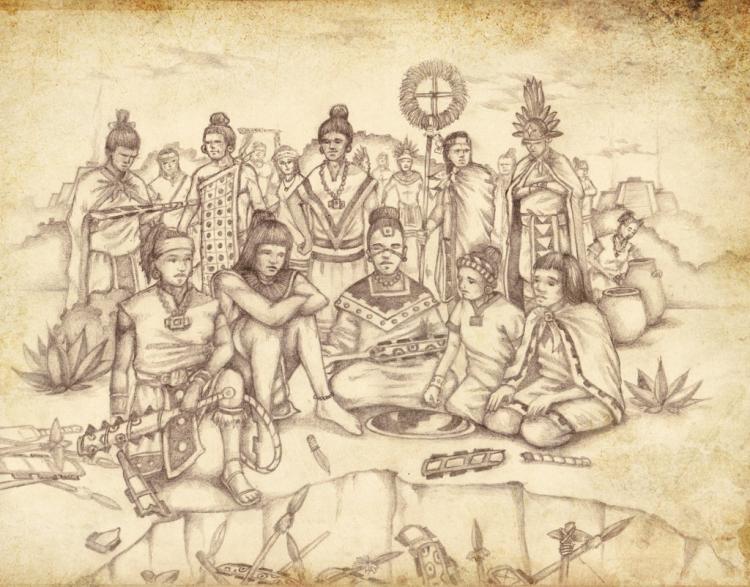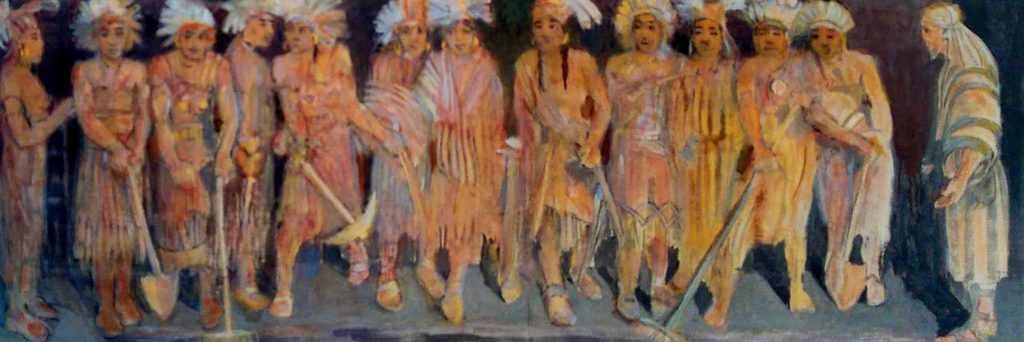I’ve always thought the name, “Anti-Nephi-Lehies” was a paradox. “Anti” means against or opposed to something — based on the Greek word, “anti” – against. So, in the Book of Mormon, a group of Lamanites, previously against the Nephites, become faithful followers of Nephi and Lehi decide to call themselves, “Anti-Nephi-Lehies.” Very confusing.
Names are Important
I was listening to Hugh Nibley’s course on the Book of Mormon when he explained this strange name. First of all, a name is important. We take on names at various times in our life as a sign of taking a vow (marriage) or making a covenant (baptism.) Nibley explains, that “You have to have a name to distinguish yourself—NOMEN EST OMEN. Without a name you can’t be identified. We know that in this age of computers identification is everything. You have to have a name to distinguish you from all others.” This is especially true today — every transaction you make on the internet, and every site you “join” requires you to have an ID, a name, an identity. And a secret password. This identifies that it is you logging in.
The Meanings of Anti, Ante
The strange meaning of the name “Anti-Nephi-Lehies” obviously means something different from what we understand the Greek word “anti” to mean today. Because, it would mean this group of followers were actually against Nephi and Lehi. Nibley explains that the Latin word, “ante” means “standing in front of a person and facing him.” I always thing of “ante” as meaning “before” — which could mean standing before or in front.
You know that Nephi-Lehi means a combination of Nephi and Lehi, and ANTI means “combination, face-to-face, meeting.” You have Adam-ondi-Ahman. That’s one of the richest prepositions we have. This ANTI means so many things. We get it in the Book of Mormon a good deal—Antiomno and things like that. There’s ANTI in the Book ofMormon. The Latin ANTE means “standing in front of a person and facing him.” Of course, that’s the Greek ANTI and the Arabic CINDA. The Old English is AND-. The word ANSWER, for example, is ANSWARIAN—swear back at a person. This means “face to face confrontation” whether it’s in Old Norse, Old English, Semitic, Arabic, Greek, Latin, or in the Book of Mormon. It means “a face-to-face meeting, a joining together with somebody.” (Hummel, Sharman Bookwalter. Nibley’s Commentary On The Book of Mormon, Volume One, . Kindle Edition.)
This group, now called the Anti-Nephi-Lehies had previously been known as Lamanites, and as such they fought against the Nephites and would have nothing to do with them (other than kill them) – they would not listen to what they had to say about the traditions of their fathers. They did not communicate. This new name, “Anti-Nephi-Lehies” also means coming face to face to communicate — opening the lines of communication: “And they began to be a very industrious people; yea, and they were friendly with the Nephites; therefore, they did open a correspondence with them,” (Alma 23:13)
Words of the past do not always mean the same thing today. It’s always good to remember that. I’m reminded of some of my teenage years and the words we used — “bitchen” was certainly not easily understood by my parents.
Staying with this meaning of “anti” — we come across its usage when it is used as “Anti-Christ.” That seems to fit our current understanding of the word “anti” — against. Again, Nibley explains,
We are going to find later on about an Anti-Christ, who is a person who pretends to be Christ, who matches Christ, who pretends to take the place of Christ. It’s not somebody who opposes Christ, but somebody who pretends to be Christ. We get that a little later when we get to Korihor. (Ibid.)


